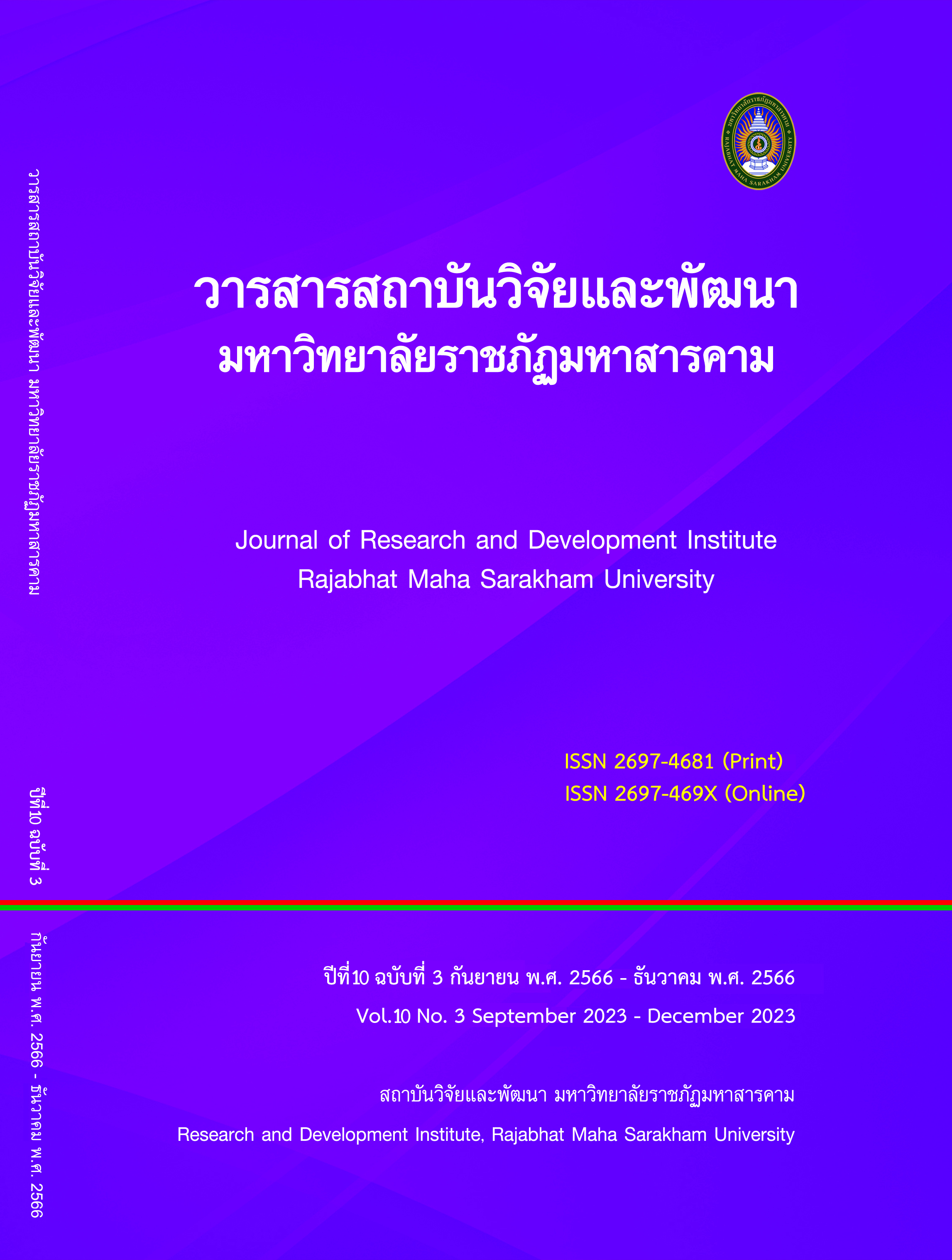Development of cooperative learning activities with STAD The story of the Tipitaka and the principles of Buddhism for Pratomsuksa 3 students
Keywords:
Collaborative learning, STAD techniques, Achievement in BuddhismAbstract
The objectives of this research were to 1) develop a collaborative learning activity with STAD technique on the Tipitaka and Buddhist Dharma Principles. For 3rd grade students to be effective on the 75/75 criteria. 2) To study the student's academic achievement obtained from the STAD cooperative learning management technique; and 3) To study the students' satisfaction towards the cooperative learning management with STAD technique. The study group consisted of 8 Prathomsuksa 3 students at Wan Khrua School, 1959. The STAD cooperative learning technique 2) the achievement test and 3) the satisfaction questionnaire. The statistics used to analyze the data were percentage, mean, and standard deviation.
The results showed that 1) The STAD cooperative learning activities had an efficiency value of 83.03 /77.50, which met the specified criteria. 2) The students had learning achievement. 77.50% were in good quality level and 3) the students were satisfied with the overall STAD cooperative learning activities at a high level. ( = 2.48 , S.D. = 0.63).
References
Adkinson, J.E. (2008) “Does Cooperative Learning Affect Girls, and Boys’ and Mixed – SexClassroom,” Dissertation Abstracts International. 68(11), 156.
Beck-Jones, Juan. (2004). “The Effect of Cross-train and Role Assignment in
Cooperative Learning Groups on Task Perfomance, Knowledge of Interposition
cooperative Learning Techniqup on upper Secondary social Studies’. Academic
Educational, 60(7), 42 - 48.
Srisa-ard, B. (2002). Basic research. (7thed). Bangkok: Suviriyasan.
Good,Carter V. (1973). Dictionary of Education. (3rded.). New York: McGraw-Hill.
Herzberg. F and others. (1959). The Motivation to Work. New york: Jone Wiley
Jaimoon, K. (2007). Results of learning management using the STAD technique in the mathematics subject group on ratios and percentages. Secondary school year, Huai San Yao Witthaya School area office Chiang Rai Education Area 2. M.Ed. Thesis (Curriculum and Teaching). Chiang Rai: Graduate School Chiang Rai Rajabhat University.
Wongsri, M. (2013). Development of activity packs. On the principles of Buddhism By cooperative learning STAD technique for students in Prathom 2, Buriram : Buriram Rajabhat University.
Ministry of Education. (2008). Basic Education Core Curriculum 2008. Bangkok: Cooperative Printing Press. Agriculture of Thailand.
Thaweerat, P. (2000). Research methods in behavioral and social sciences. (7th ed). Bangkok: Office of Educational and Psychological Testing. Srinakharinwirot University.
Ritjaroon, P. (2005. Principles of Waking and Evaluation of Education. Bangkok : House of Curmist.
Slavin, E Robert. (1990). Cooperative Learning : Theory, Research and Practice. New. Jersey : Prentice - Hall.
Slavin, E Robert. (1995). Cooperative Learning : Theory, Research and Practice. New. Jersey : Prentice - Hall.
Teacher's Day School, 1959. (2019). Measurement and evaluation work. Tha Song Khon Kaeng Loeng Chan Educational Quality Network. Mahasarakham: Wankru School 1959.
Thurasuk. U. (2007). Development of a learning plan for the mathematics subject group on fractions, grade 6. By cooperative learning STAD technique. M.Ed. Thesis (Curriculum and Teaching. Maha Sarakham: Graduate School Mahasarakham University.
Sunthornroj, W. (2009). Innovation in Thai language learning. Mahasarakham : Coordinate printing.
Downloads
Published
How to Cite
Issue
Section
License
Copyright (c) 2023 เดชฤทธิ์ บุตรเพ็ง, ธัญญลักษณ์ เขจรภักดิ์

This work is licensed under a Creative Commons Attribution-NonCommercial-NoDerivatives 4.0 International License.
Articles that are published are copyrighted by the authors of the articles







